SERVICES / Control of Organic Producers

ORGANICALLY PRODUCED PRODUCTS - Certification The Control Organization "AGRO-ORGANIC CONTROL" carries out control and certification in accordance with the requirements of Regulation (EU) 848/2018.
CONTROL OF ORGANIC PRODUCERS AND COMPANIES ACCORDING TO REGULATION (EU) 848/2018
All entrepreneurs, Regulation (EU) 848/2018specified in the rules and principles of organic production at the same time, products production, processing and distribution activities at each stage of existing national legislation and regulations to abide by.
Control of Organic Farmers
The entire farm should be managed in accordance with the requirements that apply to organic production. All of the units within a farm, if used for the organic production, the operator/contractor, soil, animals, and organic production units with products that are used or produced by non-organic production units and provides a distinction between products that are used by or produced relevant documents as proof of the distinction stores.
Workable areas of the entrepreneur or subcontractor, Certification control organization AGRO ORGANIC CONTROL LTD. it is subject to the control procedure carried out by.
Organic production should be carried out in those operating units that are clearly separated from all other areas of production that are not managed by organic production methods, including plots, processing areas and warehouses. A map for the areas belonging to each operator or subcontractor, or an accurate description of the location of all parcels, if any, should be indicated on the official topographic maps.
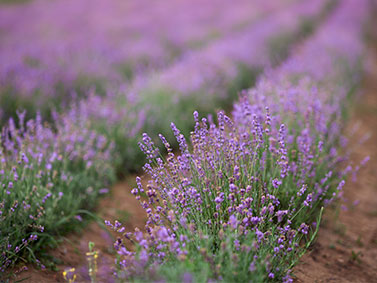
Organic Plant Production
Requirements for organic plant production:
• Signed contract for control and certification;
• Legal grounds on land / long-term leases, own land and others;
• Acquaintance with European Regulation (EU) 848/2018, regarding organic production and defining detailed rules for its application;
• On-site control of the farm - supervision;
• Selection of suitable products and varieties;
• The transition period from conventional agriculture to organic farming differs depending on the type of crop - 2 years for annual crops, alfalfa, meadows and pastures, 3 years for perennial crops;
• Use of organic/conventional seeds and/or planting material. Declaration of absence of treatment with unauthorized preparations;
• Prohibition of the use of GMO seeds and/or propagation materials;
•The Ministry of Agriculture, Food and Forestry (TGOB) has created and maintains an electronic database of varieties of seeds and planting materials produced in an organic way.
• Only the varieties of october and planting materials contained in the database and produced organically are considered available in the country.
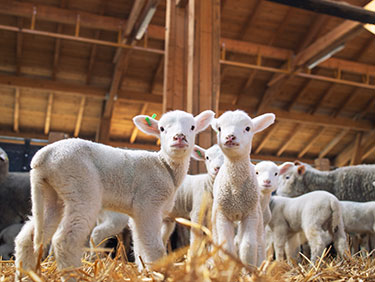
Organic Animal Production
In organic animal production, animals are born and raised on farms engaged in organic production by selecting suitable breeds. The requirements of Regulation (EC) No 848/2018 are complied with.
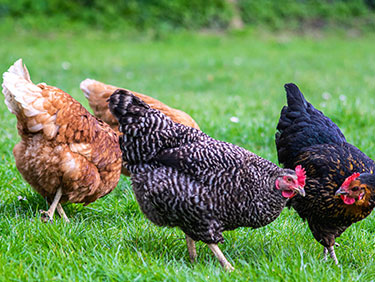
Organic Poultry Production
In order for poultry to live a maximum natural life in organic production, it must have access to plenty of fresh air, daylight and open space. Jul: When it comes to feed, the EU has strict requirements for this. At least 20% of the feed must be produced locally or in the region. The grain should not contain GMOs, and there are a number of restrictions on the pesticides and fertilizers used in October.
Poultry breeds for organic poultry farming should be suitable for both the poultry sector and beneficial to consumer health.
According to scientists, organic poultry requires the breed of chickens that is most suitable for the surrounding natural conditions. Activity, research attitude, immune response, tolerance to temperature changes, social interaction, etc. features should be taken into account.
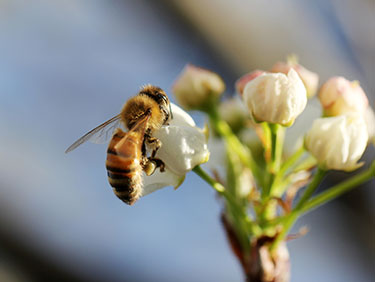
Organic Beekeeping
In organic beekeeping, apiaries are located in areas containing nectar and pollen sources, consisting mainly of organically grown crops or, where appropriate, natural vegetation or forests and crops managed in a non-organic way, processed only by methods with low environmental impact. They are located at a sufficient distance (within a dec dec 3 km) from sources that can cause contamination of bee products or harm bee health.

Wild Collection
The collection of wild plants and their parts from natural areas and forests is considered a method of organic production, provided that it is carried out according to the requirements of the specified Regulation.
Only wild plants and their parts are collected that grow naturally in natural areas, forests and agricultural areas. The entrepreneur / subcontractor provides evidence that at least three years before the collection, these areas were not interfered with by products other than those that are allowed to be used in organic production. The collection of wild plants and their parts should not affect the sustainability of the natural habitat or the conservation of species in the collection area. Harvesting of wild plants should be carried out by pre-trained pickers.

Production of Organic Cotton
The production of organic cotton means not only the replacement of synthetic fertilizers and pesticides with organic ones. Organic farming methods are based more on knowledge of the agricultural process than on conventional production.
The system approach is aimed at creating a diverse and balanced ecosystem that includes all types of crops and agricultural activities under the best conditions. The Producers have to go through a two-year transition process to switch their production from conventional production to organic production. An important element of organic production is the careful selection of varieties adapted to local conditions in terms of climate, soil and resistance to pests and diseases.
In conventional agriculture, cotton is considered a product that is highly susceptible to pest attacks. Large quantities of synthetic pesticides are sprayed to keep pests under control. However, the use of synthetic pesticides is not allowed in organic farming.
Organic production has a completely different approach: the main goal is to prevent pest attacks and closely monitor the pest population through monitoring, creating a diverse and balanced ecosystem.
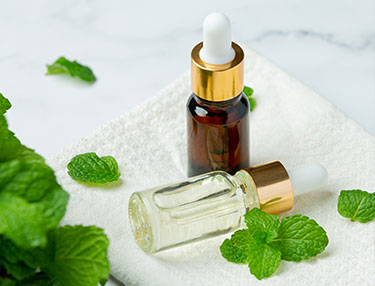
Production of Organic Essential Oils
Regulation (EU) No 2018/848 expands the scope of the current legislation on the production and labeling of organic products to include products closely related to agriculture, such as mushrooms, salt, essential oils, cotton or wool.

Organic Wine Production
For the production of organic wine, special rules have been established that comply with the goals and principles of organic production. Organic wine should be produced with organic grapes and yeast, but a number of other restrictions apply, as noted below.
• prohibition of the use of sorbic acid and desulfurization;
• the sulfide level in organic wines should be lower than in their conventional equivalents (depending on the residual sugar content).
All production units at the enterprise are subject to control, including non-organic ones.